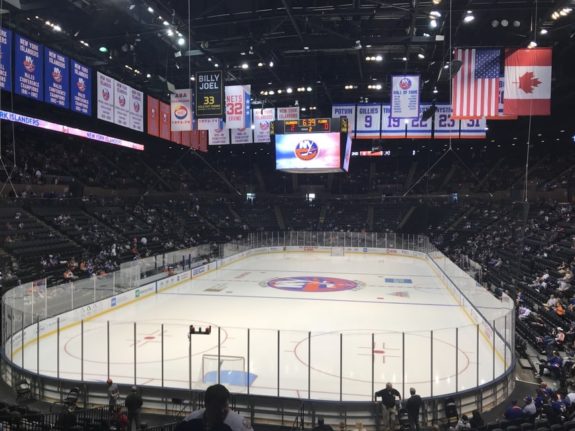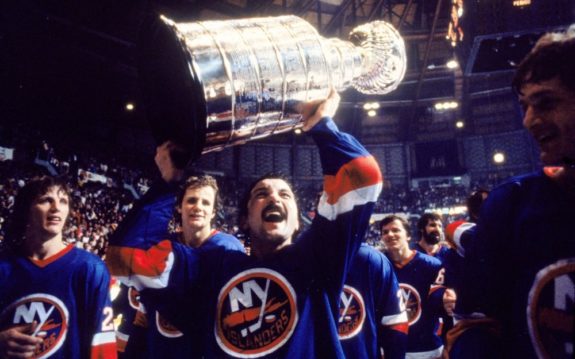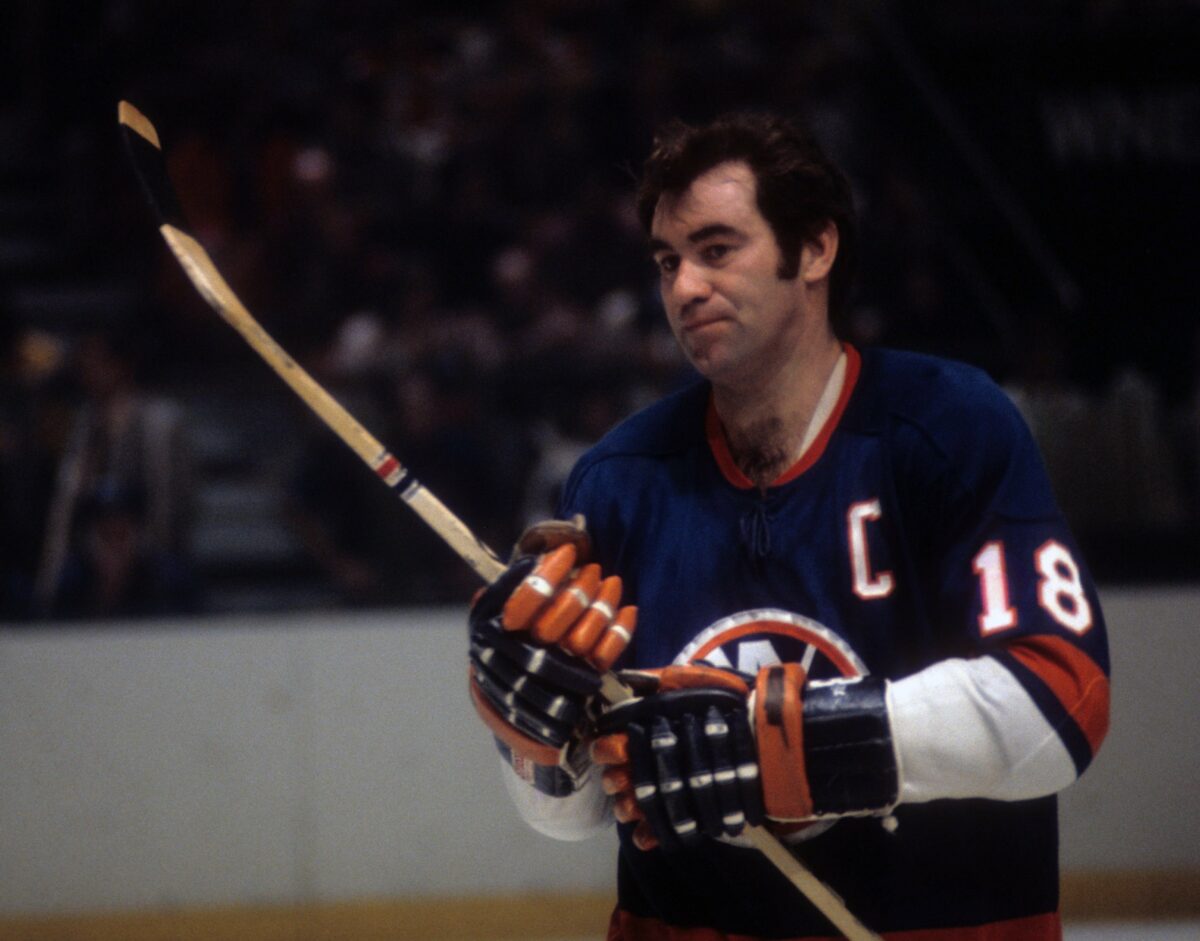The NHL is about to embark on its 104th season, welcoming a brand new club, the Seattle Kraken, into the fold. The league once had six teams (the Original Six Era) before expanding to 12 in 1967. Thanks to significant interest in the sport across North America, the New York Islanders came into existence for the 1972-73 season.
Eventually, a rival league, the World Hockey Association (WHA), folded in 1979, and the NHL adopted their teams. Things were quiet for almost a decade before expansion occurred again, and teams began to relocate. Since 1991, the league has expanded by 11 teams. When we look back at all these expansion clubs, the lone major success story occurred in 2018, when the Vegas Golden Knights lost in the Stanley Cup Final, achieving heights never seen before by an inaugural NHL franchise.
Most expansion clubs have found success (Stanley Cup Championship) at some point in their franchise timeline; however, most started with dreadful first seasons. Today, we will look back at what hockey was like for the 1972-73 Islanders.
How the Season Started for the Islanders
The Islanders had their first official game on Oct. 7, 1972, against the Atlanta Flames at Nassau Coliseum, now the Nassau Veterans Memorial Coliseum. Players on the expansion team didn’t take long to find their names in the club’s record book. Ed Westfall scored the Islander’s first goal at 19:29 of the second period thanks to assists from Germain Gagnon and Dave Hudson. The tally occurred on the power-play, crossing two firsts off the list at the same time.
Westfall would play the final seven years of his career in New York and was the club’s first captain. He collected 286 points thanks to 105 goals and 181 assists. Westfall retired right before the dynasty started in 1979; however, he already had two rings from his days with the Boston Bruins.
The team’s first goal tied the contest since the Flames opened the scoring at 12:48 of the first period when Morris Stefaniw (assist Lew Morrison) notched a shorthanded goal to welcome the Islanders into the league. The first penalty in club history belongs to Ken Murray, who was whistled for boarding at 17:42 of the first period. The team collected six penalties on opening night for a total of 12 minutes. They scored another power-play goal late in the third period (Billy Harris from Jim Mair and Dave Hudson), but the two goals weren’t enough as the Flames scored three to spoil the Islander’s opening night celebration.
In goal, Gerry Desjardins made 19 saves in the loss. The defeat was only a sign of things to come for the journeyman goalie, who played a total of 80 games on the island, producing a 14-52-9 record.
On Oct. 12, 1972, the Islanders celebrated their first victory as a team and the first victory on home ice a few nights later. In the 3-2 win over the Los Angeles Kings, Billy Harris (assists Brian Spencer and Germain Gagnon) scored the club’s first even-strength goal at 16:39 of the second, tying the game after an early Kings goal in the period. Harris also made history by attempting the franchise’s first penalty shot, which was unsuccessful.

The teams swapped goals in the third before Gagnon secured the first Islanders’ game-winning goal at 18:51 of the third. Billy Smith made his New York debut in this contest, picking up win number one of a club-record 304 wins. He made 28 saves in the win, outdueling his former teammate Rogie Vachon (23 saves).
The franchise got off to a rocky start reaching, 1-3-0, after suffering their first shutout loss, 5-0, to the Pittsburgh Penguins on Oct. 17, 1972. This contest was the first head-to-head matchup between the fierce rivals. In the very next game, on Oct. 21, 1971, the Islanders would lose 2-1 to their cross-town rivals, the New York Rangers. It marked the first time the Isles had lost to their New York counterparts, but it was just the beginning of a relentless rivalry that is now four decades old. To date, the two clubs have met 282 times, with the Islanders holding a slight lead in the win column, 131-125-19-7.
In a moment foreshadowing things to come, goalie Smith was the first Islanders player to be called for a fighting major, which occurred just 39 seconds into the second period of that Rangers contest against one of their most iconic players, Rod Gilbert. Smith logged 475 penalty minutes in his career, second all-time amongst netminders. Gilbert, meanwhile, finished his career with 510 minutes over 18 seasons.
Montreal Canadiens star Jacques Lemaire would score the first hat trick against the Islanders in a game on Oct. 24, 1972, at the Coliseum. The Canadiens won 4-3, with Ken Dryden picking up the win over Desjardins in a battle of Ontario-born goalies.
The Islanders have 347 ties in their history, and the first occurred in the team’s seventh game on Oct. 28, 1972, against the Chicago Blackhawks. After the tie, things continued to spiral out of control for the club. They went to Boston the next night and lost 9-1 at the Boston Garden, suffering their worst defeat at that point in the season.
Latest News for the New York Islanders
- NHL Morning Recap – March 5, 2026
- 3 Islanders Prospects the Canucks Should Target in a Conor Garland Trade
- Islanders’ 5-on-5 Struggles Continue to Limit Stanley Cup Potential
- Islanders Week Ahead: Schedule & Storylines – Schaefer Milestone, Playoff Push, Duclair and More
- NHL Morning Recap – March 2, 2026
The calendar flipped into November, and the Islanders finally picked up their second victory of the season, 6-2, over the California Golden Seals in Oakland, California. Gagnon became the first Islanders’ player to register a hat trick in that game, with a goal in the first period and two in the third. The win also marked Desjardins first victory as a member of the team.
Terry Crisp scored the team’s first empty-net goal in a 4-2 win over the Minnesota North Stars on Dec. 23, 1972. A few weeks later, the team set a then franchise record for scoring nine goals in a game, finally getting revenge over the Bruins, who dominated them to start the season. This 9-7 victory occurred on Jan. 18, 1973, at the Garden.
Gagnon etched his name in the record books again a few nights later by becoming the first Islanders’ player with a shorthanded goal, which occurred against the Golden Seals on Jan. 23, 1973.
Analyizing the Islanders’ Inaugural Season Statistics
The 1972-73 NHL season featured a 78 game schedule. When we look back at the results, the Islanders failed to score in 11 games, which meant they faced a shutout in 14% of their season. In 24 other contests, the team did not score more than one goal leading to several additional losses. Overall, the numbers show the team scored a goal or less in 44% of their regular-season games.
Despite the lack of scoring on most nights, a few highlights included two nine-goal games during the campaign. In January, the Islanders beat out a tough Bruins team 9-7 and then secured a 9-3 win over the Vancouver Canucks in March. The team’s worse showing occurred on Mar. 31, 1973, at the Spectrum in Philadelphia. The Flyers reached double digits, 10-2, in their dubbing of the expansion Islanders’ second to last game of the season. New York finished their season with a 4-4 tie against the Flames at the Omni Coliseum in Atlanta.

(THW Archives)
The Islanders collected a season-high 43 shots on goal during a contest with the Chicago Blackhawks on Feb. 1, 1973. Their lowest total (13) occurred against the Rangers on Feb. 18, 1973. When the season concluded, they scored just 170 goals (2.18 goals a game) and surrendered 347 (4.45 goals a game), both franchise records for entire seasons.
A season-high 44 penalty minutes (PIM) were collected in a contest against the Flyers on Feb. 13, 1973. The Flyers also had 44 PIM of their own to bring the match’s total to 88 PIM. The bad blood carried over into their Mar. 31, 1973 contest where the Flyers erupted for 54 PIM, while New York didn’t retaliate, collecting just 18 PIM in return. Surprisingly, the Islanders went one game without a penalty, which occurred on Feb. 4, 1973, against the Buffalo Sabres; meanwhile, the team didn’t get any power-play opportunities in three contests against the Canadiens, Bruins, and Sabres.
The Islanders were not known for their defensive prowess in 1972-73, which saw them give up a season-high 60 shots to the Flyers on Nov. 22, 1972. The team surrendered more than 50 shots on two other occasions while finishing the season with 15 more games of 40 shots or more in a contest. Only on two occasions did the Islanders managed to hold an opponent to less than 20 shots (both against the North Stars), with one of those games turning into a 16 shot shutout loss on Jan. 16, 1973.
Special teams were another area of struggle, with the Islanders only scoring 28 power-play goals, compared to the league average of 49. As a team, they gave up 63 man-advantage goals, way above the league average of 49. Their final numbers, 10.85% on the power play (PP) and 75.86% on the penalty kill (PK) are below the league average of 18.71% (PP) and 81.29% (PK). New York scored just two shorthanded goals while giving up 13.
Team chemistry is a significant contributor to success in any season, let alone the first one. Unfortunately for the Islanders, the chemistry never seemed to come together as the team suffered what appeared to be endless losing streaks. Lost among the numbers was the club’s first three-game winning streak, March 17-24, 1973. The Isles beat the St. Louis Blues, Golden Seals, and Flyers to head into the season’s final three games on a high note. Back-to-back losses and a tie ended the season just seven days later.
Single wins broke up long losing streaks. The most extended, 12 games, occurred between Dec. 27, 1972, and lasted until Jan. 16, 1973. That was as bad as it got for the new guys; however, the team suffered several losing streaks. On top of an eight-game and two seven-game skids, the Islanders dropped four in a row regularly. The longest losing streaks accounted for 56% of their total losses.
Westfall and Harris Were the Statistical Leaders
Thirty-two players played at least one game during the Islanders’ first season. As of Feb. 1, 1973, the main roster was dominated by Canadian-born players, with Bob Nystrom (Sweden) being the only exception.
Twenty-seven players registered a point while the three goalies (Smith, Desjardins, and Gerry Gray) and forward Ernie Hicke (one game) and defenseman Dave Pulkkinen (two games) failed to tally any points in their limited appearances. Harris was the team leader in points with an even 50 in 78 games. He scored 28 goals and chipped in 22 assists, with the bulk of his points (33) coming at even strength. On top of being the leader in points, he led the team in shots (196) and came in second with a 14.3% shooting percentage.

(Photo by B Bennett/Getty Images)
Six players managed to reach double digits in goals, and 14 players recorded double-digit assists. The leader in the latter category was captain Westfall, who was the only player to reach 31 helpers. Only two players played in every game (78), Harris and Spencer; the latter recorded 38 points in a career season for the former Toronto Maple Leaf.
Gerry Hart recorded 158 PIM, the only player to reach triple digits as Spencer fell short at 91 PIM. Smith was planting the seeds of his reputation as a tough-as-nails competitor with 42 PIM in the first season, good enough for seventh-most on the team. Only four players, Brian Marchinko, Gray, Hicke, and Pulkkinen, didn’t spend any time in the penalty box that season.
As pointed out earlier, the Islanders had a wide gap regarding goals for and against, and it showed in the plus/minus category. Bill Mikkelson held the way with a minus-53 rating, with five more players over minus-40. Five players had a minus rating under ten, but they didn’t play in more than 11 games. Overall, only the three goalies (Smith, Desjardins, and Gray) and Hicke avoided being a minus at the end of the season.
Smith and Desjardins Were the Workhorses
The 1972-73 New York Islanders season was a tough time to be a goalie. Desjardins played in 44 games and wound up with a 5-35-3 record, a club record that no one would ever want. He gave up 195 goals on 1456 shots to register a 4.69 goals-against average (GAA), and poultry .866 save percentage (SV%). In 4675 minutes, he made 1261 saves.

(Photo by B Bennett/Getty Images)
Smith, the team’s second pick in the expansion draft behind Desjardins, started his legacy off on the wrong foot with a 7-24-3 record in 37 games. His numbers were slightly better than his batterymate, surrendering 147 goals on 1207 shots for a 4.16 GAA and .878 SV%. In 2121 minutes, he made 1060 saves.
Gray made his final NHL start on Oct. 17, 1972, against the Penguins, a 5-0 loss. He surrendered five goals on 34 shots giving him a 5.00 GAA and .853 SV% for the season. Gray, who previously played seven games with the Detroit Red Wings, never appeared in the NHL again.
The 1972-73 Islanders’ Place in NHL History
At the end of the 1972-73 season, the Islanders had the worse inaugural season in NHL history. They took the crown from the Golden Seals, who were 15-42-17 in 1967-68; the NHL’s first season expanded outside the Original Six era. The Kansas City Scouts, who would debut just a season later, had better success (15-54-11), leaving the Islanders at the bottom.
The Islanders’ claim to fame was short-lived, though, as the Washington Capitals debuted in 1974-75 and had a worse inaugural season. The eventual 2018 Stanley Cup Champions secured just eight wins in an 80 game schedule that first season. The Caps were 8-67-5 for 21 points, which remains an NHL record. When the Ottawa Senators were reborn in 1992-93, they challenged the Capitals for several of these records but finished 10-70-4 in 84 games for 24 points.
These two teams bumped the Islanders down to third place on the inaugural season chart. Their record, 2-60-6, and 30 points are still franchise lows, but the worse inaugural trophy is no longer on their mantle. In 2017-18 the Golden Knights shattered all expansion records with an astonishing 51-24-7 campaign with 109 points. The team came only three wins away from winning the Stanley Cup after marching through the first three rounds of the playoffs.
Final Analysis of the 1972-73 Inaugural Season
We all know that failure leads to success. The Islanders eventually found all the pieces they needed to hoist Lord Stanley, which they did four consecutive years in a row from 1979-1983. New York became the first expansion team to win more than back-to-back titles and the only team in league history besides the Canadiens to win four or more consecutive championships.
The Islanders are once again legitimate threats to win the Stanley Cup for the first time since 1983. The team could have never achieved their most remarkable feats without taking a few bumps to find their footing and make history. Fans need to remember the struggles of yesterday to enjoy the spoils of tomorrow.